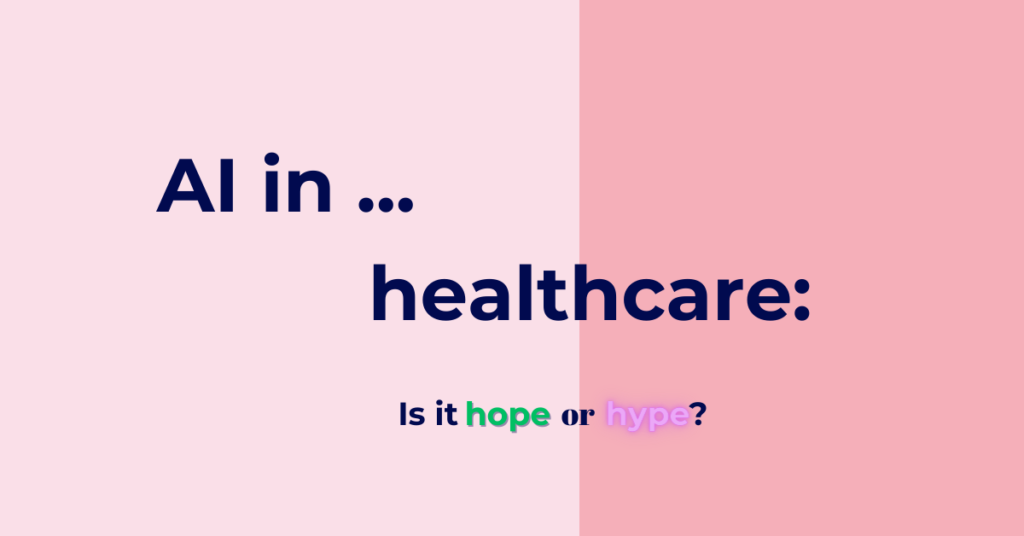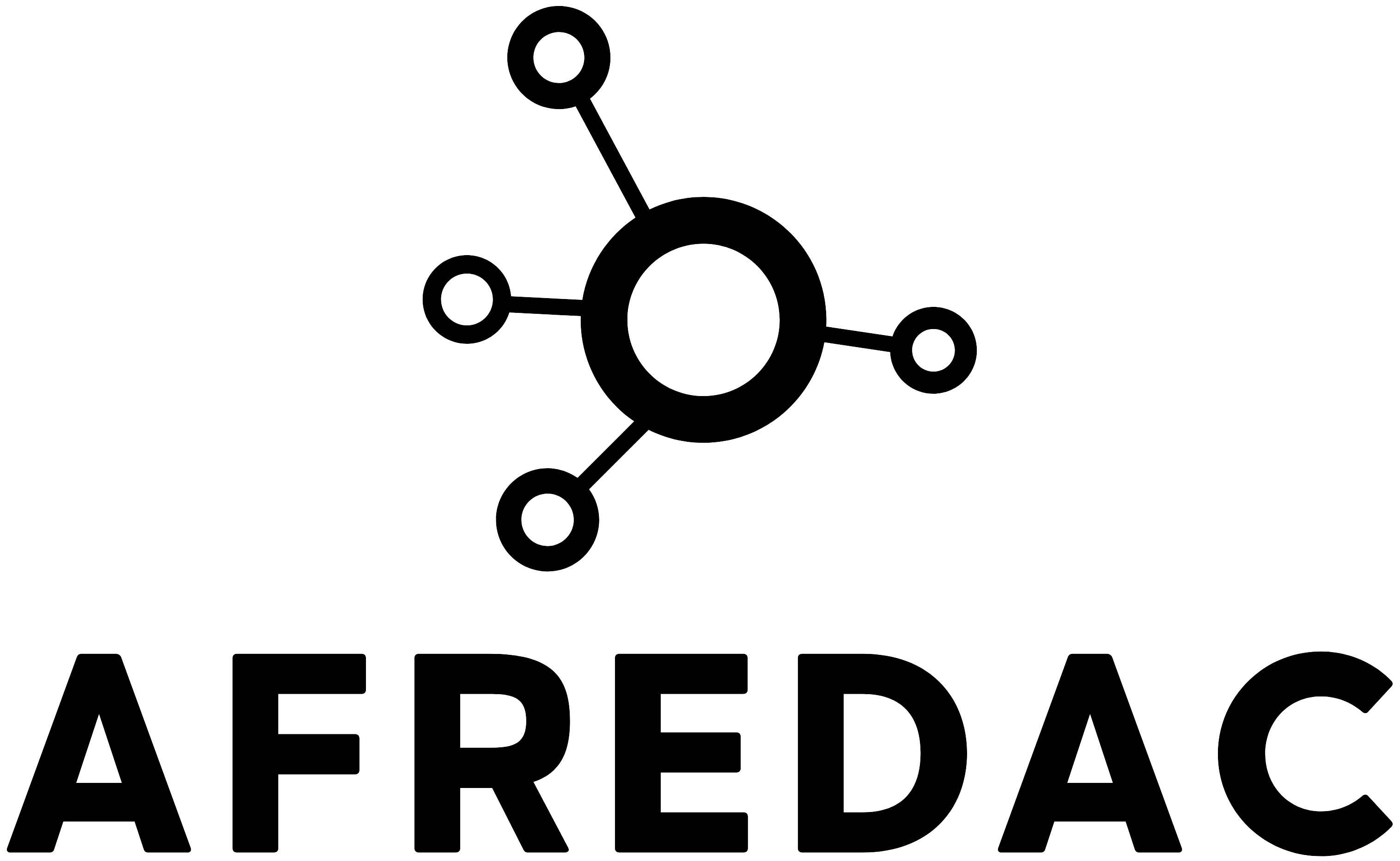Healthcare’s AI Revolution: Hope or Hype?

AI’s transformative impact on healthcare and essential risk considerations.
Artificial Intelligence (AI) is rapidly transforming the healthcare landscape, promising significant advancements and efficiencies. From early disease detection to enhanced patient care, AI’s integration into medical practice is poised to revolutionize the industry. Despite these promising developments, it is crucial to consider the ethical and practical challenges posed by this technology to ensure it benefits everyone equitably. But are the promises from AI real hope or just hype? This article aims to explore AI’s potential growth, opportunities, and ethical challenges around AI usage.
Early AI Impact and Promising Applications
During the 2023 AI for Good summit, the World Health Organization (WHO) Director-General Dr. Tedros Adhanom Ghebreyesus stated,
“AI is already playing a role in diagnosis and clinical care, drug development, disease surveillance, outbreak response, and health systems management. The future of healthcare is digital, and we must do what we can to promote universal access to these innovations and prevent them from becoming another driver for inequity” [1]
In recent years, AI has revolutionized healthcare, enhancing patient care, research, data management, precision medicine, and personalized medicine development.
AI is already being used to detect diseases such as cancer more accurately and in their early stages [2]. For example, an AI program developed by researchers at Houston Methodist Research Institute in Texas enables the review and translation of mammograms 30 times faster with 99% accuracy, reducing the need for unnecessary biopsies. As reported in April 2024 in the JAMA Internal Medicine Journal, ChatGPT-4, an advanced language model developed by OpenAI, outperformed residents and physicians at two academic hospitals in the US [3].
AI Enhancing Healthcare Delivery
Beyond accurate diagnosis, AI aids health providers in practicing their profession by freeing up time from administrative tasks, allowing more direct patient engagement. According to WHO, AI is integrated into most pharmaceutical development steps and will likely touch nearly all future pharmaceutical products [1].

AI can help identify errors in medication self-administration. For instance, a study in Nature Medicine found that up to 70% of patients don’t take insulin as prescribed. An AI-powered tool could monitor and flag errors in medication administration [4].
Economic and Communication Benefits
Harvard’s School of Public Health reports that using AI for diagnoses may reduce treatment costs by up to 50% and improve health outcomes by 40% [5]. Additionally, a study from SIMBO.AI revealed that 83% of patients find poor communication the most frustrating aspect of their healthcare experience, indicating a need for improved patient-provider dialogue [6]. AI technologies like natural language processing (NLP), predictive analytics, and speech recognition have the potential to enhance communication in healthcare.
AI in Healthcare in Africa
Africa is also leveraging AI to address healthcare challenges. For example, in Kenya, the SophieBot chatbot provides young people with verified sexual and reproductive health information, while Askniah.com offers a WhatsApp-based health assistant that delivers instant health advice [7, 8]. Diagnosoft in Kenya uses AI to diagnose diseases from medical imaging scans, significantly improving diagnostic speed and accuracy, particularly for tuberculosis [8]. AI is also being used in infectious disease detection and response. For instance, AI tools have been employed in monitoring and predicting outbreaks of diseases like malaria and Ebola by analyzing vast amounts of data to identify patterns and potential outbreaks [9]. In Rwanda, AI-powered drones are being used to deliver medical supplies to remote areas, ensuring timely access to essential medicines and blood products [10]. In Nigeria, AI is utilized for the early detection of diabetic retinopathy through deep learning algorithms that analyze retinal images, significantly improving early diagnosis and treatment outcomes [11]. These are some of the examples illustrating how AI can bridge healthcare gaps and enhance medical outcomes in resource-limited settings.
Ethical and Practical Challenges
However, for societies, health systems, and individuals to fully benefit from AI, associated risks and ethical challenges must be addressed. One of the key risks is the protection of health data and privacy. A study published in BMC highlighted that commercialization often requires collaboration with private-sector companies, which can sometimes lead to inadequate privacy protections [12].
“Artificial intelligence holds great promise for health, but also comes with serious challenges, including unethical data collection, cybersecurity threats, and amplifying biases or misinformation,” said Dr. Tedros Adhanom Ghebreyesus, WHO Director-General.
To manage these risks, WHO issued guidance emphasizing transparency and documentation throughout the AI product lifecycle. Comprehensive risk management is essential, covering issues like intended use, continuous learning, human interventions, training models, and cybersecurity threats.
A commitment to data quality is vital, involving rigorous pre-release evaluations to prevent amplifying biases and errors. Understanding and adhering to complex regulations, such as the General Data Protection Regulation (GDPR) in Europe and the Health Insurance Portability and Accountability Act (HIPAA) in the USA, ensures privacy and data protection.
In Africa, several countries have developed their own data protection regulations. For instance, South Africa’s Protection of Personal Information Act (POPIA) provides comprehensive guidelines on data protection, emphasizing the protection of personal information and privacy [13]. Similarly, Nigeria has the Nigeria Data Protection Regulation (NDPR), which outlines data protection principles and ensures the privacy and protection of individuals’ data [14]. Both East and West African countries are also working on implementing their own general data protection laws to align with international standards and protect personal data [14, 15].
Balancing Benefits and Risks
While the advantages of AI in healthcare are clear, it is equally important to address potential downsides. Ethical concerns, such as data privacy and the risk of biased algorithms, must be prioritized. Ensuring that AI systems are transparent and accountable is crucial to maintaining public trust. Regulatory frameworks need to evolve alongside technological advancements to provide clear guidelines and protections.
The future of healthcare lies in the harmonious coexistence of human expertise and AI capabilities. By addressing ethical concerns and ensuring equitable access, we can harness AI’s full potential to create a more effective, inclusive, and innovative healthcare system. The goal is not just to integrate AI into healthcare but to do so in a way that enhances human capability, improves patient outcomes, and promotes fairness and equity. As we move forward, striking a balance between innovation and ethics will ensure that AI serves as a tool for universal benefit rather than a source of division.
Conclusion
The healthcare industry is poised for a transformative era driven by AI. While AI offers immense benefits, it also brings challenges, particularly regarding ethics and equity. Ensuring that AI technologies are developed and deployed responsibly will be crucial in realizing their full potential to improve healthcare outcomes globally.
References:
- World Health Organization. Benefits and risks of using artificial intelligence for pharmaceutical development and delivery. 2024. Available from: https://www.who.int/publications/i/item/9789240088108
- Griffiths S. This AI software can tell if you’re at risk of cancer before symptoms appear. Wired. 2016. Available from: https://www.wired.com/story/cancer-risk-ai-mammograms/
- Cabral S, Restrepo D, Kanjee Z, Wilson P, Crowe B, Abdulnour RE, et al. Clinical Reasoning of a Generative Artificial Intelligence Model Compared With Physicians. JAMA Intern Med. 2024;184(4):295-301. DOI: 10.1001/jamainternmed.2024.0295
- Zhao M, Hoti K, Wang H, et al. Assessment of medication self-administration using artificial intelligence. Nat Med. 2021;27(5):727-735. DOI: 10.1038/s41591-021-01273-1
- Harvard T.H. Chan School of Public Health. AI for Health Care: Concepts and Applications. 2024. Available from: https://www.hsph.harvard.edu/ecpe/programs/ai-for-health-care-concepts-and-applications/
- Simbo AI. How AI Technologies Improve The Patient Experience. 2021. Available from: https://www.simbo.ai/blog/index.php/2021/09/23/how-ai-technologies-improve-the-patient-experience/
- How Kenyan innovators are using AI to come up with health solutions. Nation. Available from: https://www.nation.africa/kenya/news/how-kenyan-innovators-are-using-ai-to-come-up-with-health-solutions-3762276
- Digital tools could boost efficiency in African health systems. McKinsey. Available from: https://www.mckinsey.com/industries/healthcare-systems-and-services/our-insights/how-digital-tools-could-boost-efficiency-in-african-health-systems
- Powering Africa’s digital health through artificial intelligence-driven innovation. Science for Africa Foundation. Available from: https://www.scienceforafrica.foundation
- Zipline. How Zipline drones are delivering medical supplies in Rwanda. Available from: https://flyzipline.com/
- Olawuyi TO, Ugah UI. Artificial intelligence for the early detection of diabetic retinopathy in Nigeria. Diabetes Care. 2021;44(2) DOI: 10.2337/dc20-2582
- Murdoch B, Jandura A & Caulfield T. Privacy concerns with commercial artificial intelligence for healthcare report. Available from: https://www.ualberta.ca/law/media-library/faculty-research/hli/research/docs/privacy-concerns-with-commercial-artificial-intelligence-for-healthcare.pdf
- Protection of Personal Information Act, 2013 (POPIA). Available from: https://www.gov.za/documents/protection-personal-information-act
- Nigeria Data Protection Regulation (NDPR). Available from: https://nitda.gov.ng/regulations/
- Kenya Data Protection Act, 2019. Available from: https://ictpolicyafrica.org/en/document/n7xolcf4vk8?page=1
- African Law & Business. Data protection regulations in Francophone West Africa. Available from: https://africanlawbusiness.com/sections/data-protection


Responses